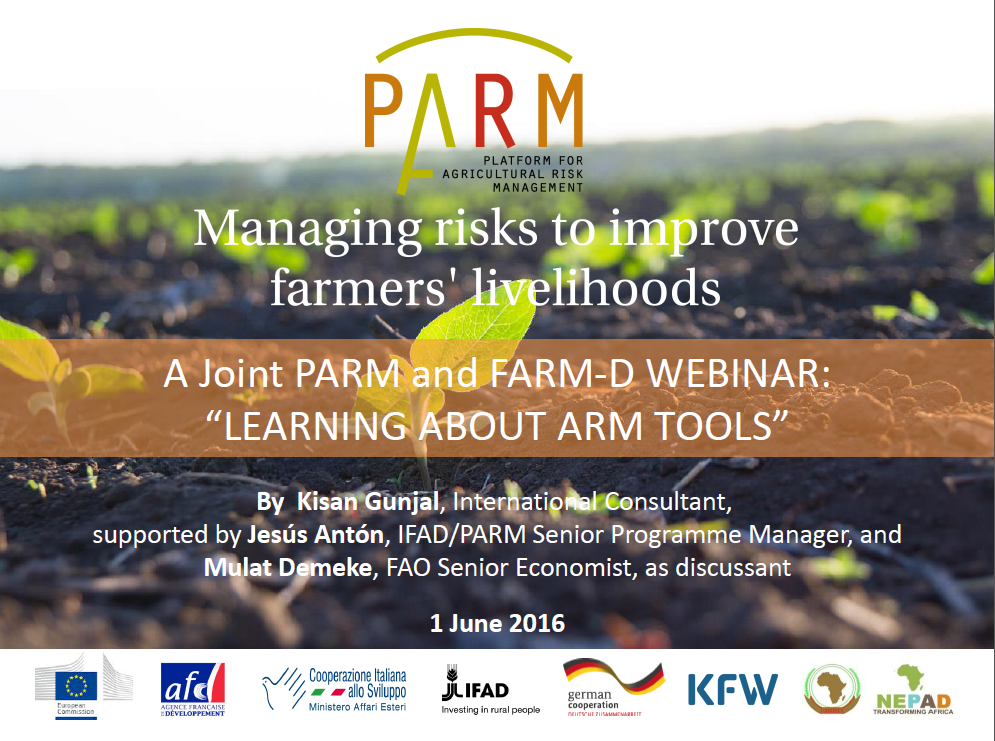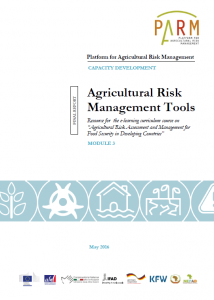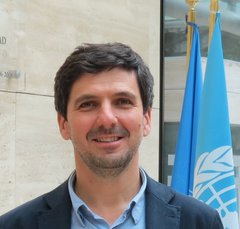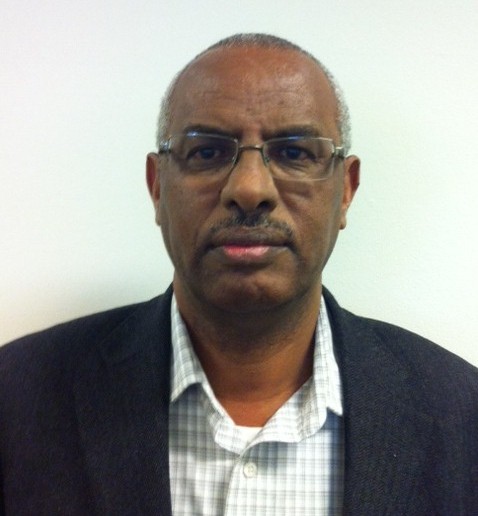The Platform for Agricultural Risk Management (PARM) along with the Forum for Agricultural Risk Management in Development (FARM-D) organized a webinar on “Learning about Agricultural Risk Management Tools”, on 1st June 2016. The webinar was an occasion to discuss the module on ARM tools developed by PARM as part of the broader e-Learning course “Agricultural Risk Assessment and Management for Food Security in Developing Countries” in collaboration with FAO.
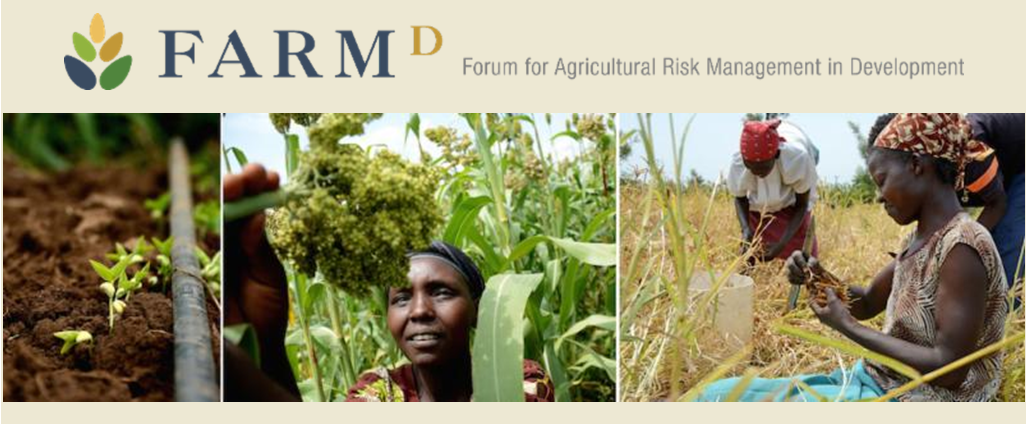
Background
Risks in agriculture arise from a variety of sources and, given the complexity of scenarios, to deal with them effectively there are a multitude of potential risk management tools. However, no single tool addresses all risks or fits to all farmers. Therefore, when selecting the appropriate strategy and set of tools it is necessary to consider all possible scenarios involving different risks, farmers’ strategies and government policies using a holistic approach.
Most of these tools, however, are complex to understand, and require certain knowledge and skills to assess, formulate and implement them successfully. It is therefore essential to develop the necessary capacity among relevant stakeholders to assess the diversity of potential agricultural risk management (ARM) tools and design the appropriate strategy. This capacity development relates to government officials that develop risk management policies to make ARM tools more accessible to farmers, as well as service providers and farmers.
The webinar was an occasion to discuss the module on ARM tools of the broader e-Learning course “Agricultural Risk Assessment and Management for Food Security in Developing Countries” with the author, independent consultant Kisan Gunjal. This course is being developed by a group of development partners and practitioners led by FAO to create holistic reference learning material on ARM that is agreeable by experts and practitioners. The Platform for Agricultural Risk Management (PARM), hosted at IFAD, has supported this first module written by the author. This learning module reviews the various instruments useful in managing risks in agriculture, its advantages and disadvantages going through the practical lessons learned. The objective of the module is raising awareness on the diversity of ARM tools available to farmers and enhancing the tool management capacities of the participants. The objective of the webinar is to present this module in order to make it fully available for dissemination and learning use.
WEBINAR REPLAY
BACKGROUND DOCUMENTS
- Report Agricultural Risk Management Tools – Module I (Download PDF)
The Speakers
A team consisting of Jesús Antón (Senior Programme Manager for the PARM), Kisan Gunjal (International consultant), and Mulat Demeke (Senior Economist at FAO), will present the report and kick-off discussions during the one-hour long webinar presentation.
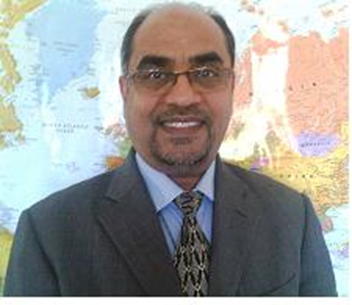
Dr. Kisan R. Gunjal
International consultant on global food security and agricultural development
Kisan Gunjal, with a Ph.D. in Agricultural Economics from Iowa State University, USA, is currently the CEO of iReamDevelopment, a not-for-profit organization and an international consultant on global food security and agricultural development based in Toronto, Canada. Dr Gunjal led the curriculum development of the FAO/IFAD e-learning course on Agricultural Risk Assessment and Management and prepared the technical paper on the module dealing with Agricultural Risk Management Tools for IFAD. In 2014 he was the lead author of FAO reports on the impact of Ebola on agricultural production in West Africa. From 2002 to 2014 he served as a food security economist for the Food and Agriculture Organization of the United Nations, in Rome, Italy, from where he led/conducted over 25 food security related UN Missions to many developing countries. Before joining FAO, Dr. Gunjal served as a professor in the Department of Agricultural Economics, McGill University, Montreal, Canada for 20 years.
Jesús Antón
Senior Programme Manager of the Platform for Agricultural Risk Management (PARM)
Jesús Antón is Senior Programme Manager of the Platform for Agricultural Risk Management (PARM). This G8/G20 initiative hosted by the International Fund for Agricultural Development (IFAD) promotes risk assessment and risk management policies in nine African countries. Before IFAD and until August 2014, he worked as Senior Economist in the Trade and Agriculture Directorate of the Organization for Economic Cooperation and Development (OECD). He has also been advisor in the Spanish Ministry of Agriculture (2005-07).
He holds a PhD in Economics (UAM, Madrid), an MSc in Economics (London School of Economics) and a Master from College d’Europe (Belgium). He has lectured on economics and agricultural policy in Universities such as UCM, ICADE, ESSEC and CIHEAM. He has published in OECD and academic journals on topics related with modeling and evaluation of agricultural policies, international trade and WTO, decoupling, common agricultural policy, risk management, insurance, food security and climate change.
Mulat Demeke
Senior Economist, FAO
Mulat Demeke is an Economist at the Agricultural Development Economics Division (ESA) of the Food and Agriculture Organization (FAO). He has several years of teaching and research experience at Addis Ababa University, Ethiopia, where he was the Dean of the Faculty of Business and Economics of Addis Ababa University prior to joining FAO in 2008. At FAO, he has been coordinating the initiative (FAPDA) on policy monitoring in over 70 developing countries and undertaking analytical works in various areas, including policy responses of developing countries to the 2007/08 food crisis, food security and price volatility in Africa, and agricultural risk management. He has particular interest in the evolution and impact of food and nutrition security policies since the 2007-09 food, fuel and financial crisis. His FAO assignment has also included supporting and coordinating the preparation of the State of Food Insecurity in the different regions by the FAO regional offices, and providing technical assistance to countries in formulating food and agricultural policies. Mulat Demeke has a PhD in Agricultural Economics from Strathclyde University, UK, and M.Sc. in Economics Development and Planning from Addis Ababa University, Ethiopia. He has published several articles in various academic journals and co-authored books and manuscripts.


